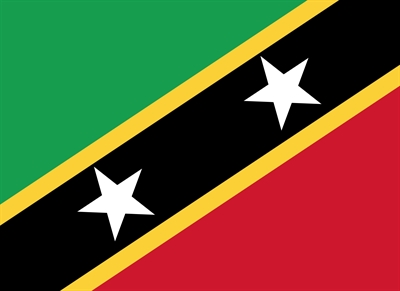Saint Kitts and Nevis - Human Rights Council - Death Penalty - March 2015
Country: Saint Kitts and Nevis
Type: Intl Mechanism Submission
Issues: Death Penalty, Detention, Due Process and Fair Trial, International Advocacy, Legal Representation
Mechanism: UN Universal Periodic Review
Report Type: Stakeholder Report
The Advocates for Human Rights – in collaboration with the Greater Caribbean for Life and the World Coalition against the Death Penalty - submitted a joint stakeholder report to the UN Human Rights Council for its November 2015 Universal Periodic Review of Saint Kitts and Nevis. This submission describes Saint Kitts and Nevis’ international human rights obligations with regard to its use of the death penalty.
The Constitution of Saint Kitts and Nevis allows for the use of the death penalty in cases of treason and murder. The country is responsible for the most recent execution in the English-speaking Caribbean, which took place in 2008, but it has not executed another prisoner since then. The government continues to support use of the death penalty and public support for hangings likewise remains high. The actual imposition of the death penalty in Saint Kitts and Nevis remains relatively rare, with only three people executed in the past 30 years.
Saint Kitts and Nevis currently has one inmate on death row, Everson “Blee” Mitcham, who has been on death row for over thirteen years since his sentencing in 2001. The lengthy detention puts him at risk of psychological injury and is in violation of a Privy Council ruling that the sentences of death row inmates should be commuted to life in prison after five years. Mitcham’s prolonged detention and isolation elevate his risk for serious and lasting psychological problems, amounting to cruel and inhuman treatment.
The execution of Elroy Laplace in 2008 highlighted several concerns regarding the lack of adequate legal representation and due process in criminal proceedings. It is unclear whether the Saint Kitts and Nevis government provided Laplace with adequate legal counsel at critical stages of his appeal, nor is it clear whether the government has taken sufficient steps since that time, to better protect the right to legal representation in capital cases.
During the 2011 UPR, Saint Kitts and Nevis received 13 recommendations requesting the abolition of the death penalty and/or a moratorium on the use of the death penalty. The country noted these recommendations but accepted several other recommendations pertaining to the death penalty more generally. The report notes that it is unclear whether Saint Kitts and Nevis has made significant progress toward implementing the recommendations it has accepted.




